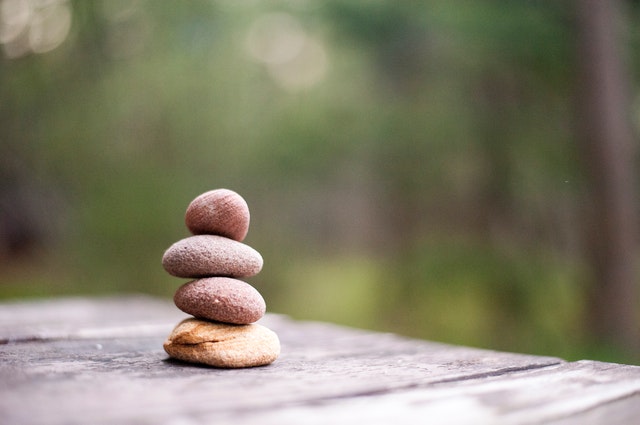
You’re probably juggling a lot : a full-time job, friends and family duties, hobbies, chores, and all the things you need to do to keep yourself healthy every day. You’re wearing a lot of hats. And to successfully do that, you need to balance the things you have to do with the things you want to do. Afterall, you can’t pour from an empty cup. If you don’t take some time to “fill up” with things that truly satisfy you, you’ll have no energy for the things you need to do.
When you want to find balance in your life, it is important to know what it is you are seeking before you get started. Understanding what it is that you want most out of life or what it is that you are lacking can help you carve a path that is truly balanced in all of the right areas.

Define What Balance Means to You
Balance for one person may require more effort in their work. For others, they may need to spend more time focusing on others as well as themselves. Define what balance means to you and what type of work/life routine you desire.
Does balance involve spending more time with family and friends, or even time alone? Does balance mean putting more time and effort into your work and your long-term career? Knowing exactly what you need and what you might be missing can help you carve out a plan of action that is suitable for your lifestyle.
Track Your Time
One of the biggest mistakes we can make when seeking balance in our lives is neglecting to track our time and how we spend it. Tracking your time will provide valuable insight into how your time is spent and what can be done to make even more out of the time you have available.
Plan your daily schedule in advance. Use a written calendar to visualize time blocks you set aside for work, personal time, hobby time, and time with loved ones. If you’re unable to keep up with a written calendar, set aside a few minutes each morning or night to plan for the day ahead.
Set timelines, deadlines, and short-term goals using a visual calendar to keep track of your progress.
Allow yourself flexibility and room to make mistakes. Avoid being harsh on yourself if you do not meet every goal, while also making room for improvement.

Set Boundaries
Whenever you’re at work or at home, it’s important to have boundaries in place. Spending too much time working while at home may quickly lead to an imbalance. If you spend too much time focusing on family and friends while at work, your work is likely to suffer.
Set time aside each day dedicated to work and household chores or tasks. It’s also important to set time aside to spend with loved ones. Tending to your relationships is a key component to truly maintaining a semblance of balance in even the most hectic lifestyles.
Set clear work boundaries that include when you’re unavailable and what type of tasks or work you are uninterested in.
Work to develop a “mental switch” that will allow you to smoothly transition from work mode into a home mode, where you can relax, unwind, and focus on loved ones and hobbies or skills that bring you a sense of joy.
Seek Compassionate Support
Another way to find balance in your life is to look towards others for assistance and support. Joining a local counseling group, meeting up with like-minded individuals, or even enrolling in virtual therapy are all extremely beneficial tools for those seeking more balance in their everyday lives.
Talking with others about your stresses and discussing potential solutions can help you navigate even the most chaotic schedules. Simply having an outlet where you can express yourself freely and openly is a way to clear your mind on your journey to a more balanced life.

Pay Attention to Your Health
While it’s essential to pay attention to your mental health, it’s also equally important to take care of your physical health and fitness. Your physical health impacts not only your body’s physique but also your mental health and how you feel on a daily basis.
Spend at least 30 minutes each day getting a bit of cardio exercise, even if it includes a quick walk through your own neighborhood.
Improve your diet. Eliminate processed foods, excessive sugar and carbohydrates, and unhealthy fats. Avoid eating packaged food and, instead, spend time preparing and cooking meals as a form of meditation and relaxation after work. Putting time and effort into your diet and nutrition will ultimately result in a healthier overall mental status and help you avoid unhealthy coping mechanisms like addiction.
Nurture Your Relationships
Are you feeling sad, lonely, or anxious? If so, it may be time to connect with those who mean the most to you. Nurturing your friendships and relationships with relatives and loved ones can help release natural dopamine, or “feel-good chemicals,” as you work to find balance in your life.
Dedicate time each day to communicating with friends and loved ones. Make time for those who mean the most to you at least once a week in-person to help separate your work life from your life outside of work.
Although finding balance in your life is not an overnight process, it’s possible on your own once you take an honest inventory of your current lifestyle. Taking time to evaluate your current routine while making reasonable efforts to improve your habits is the best way to bring balance into any way of life.





Leave a reply